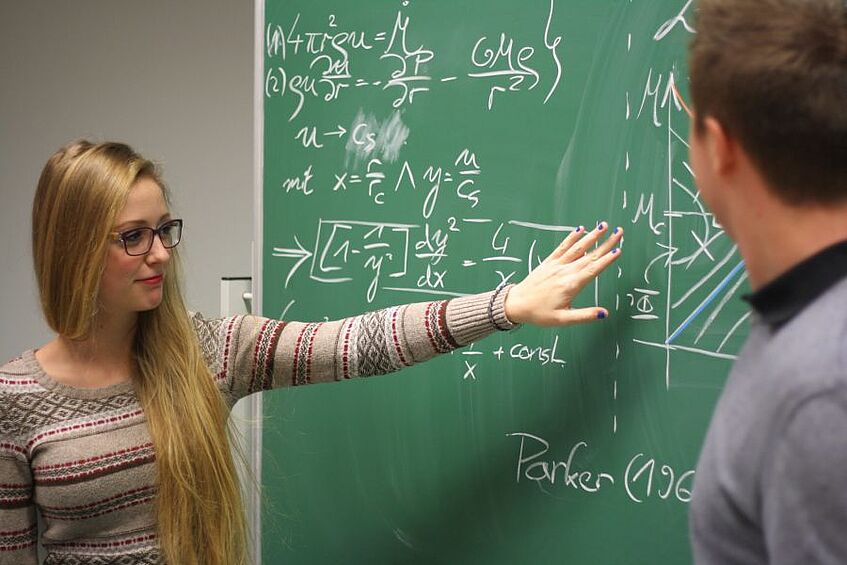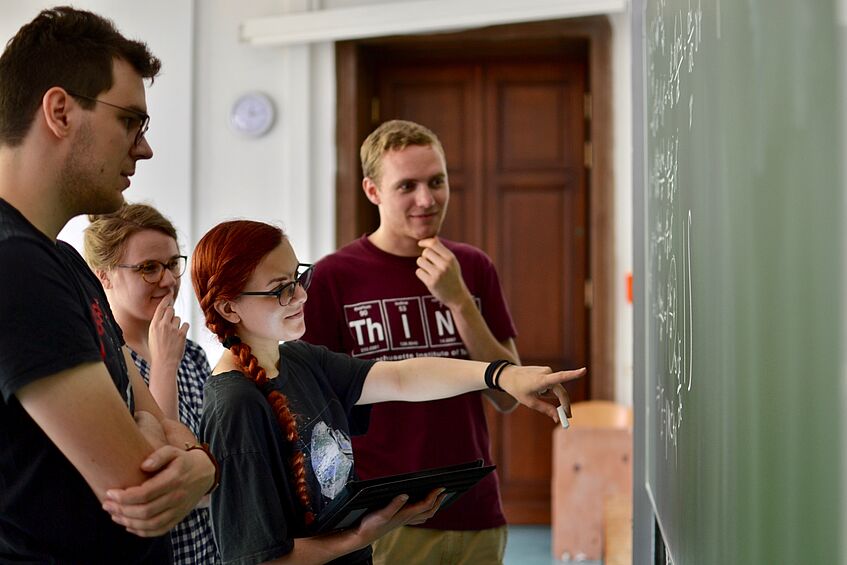Astronomy (Bachelor)

© Universität Wien / Fakultät für Mathematik
The bachelor's programme in Astronomy aims to provide a first-class basic academic education in the fields of astronomy, astrophysics and space research. It provides students with a solid education in natural sciences. Graduates of the bachelor’s programme are well-prepared to enter professional life or continue their academic education in a master’s programme.
Classes are held in German and English. Therefore, students are expected to be proficient (level C1) in both languages.
Bachelor of Science
Degree Programme Code: 033 661
6 semesters / 180 ECTS credits (including 15 ECTS credits of specialisation in Astrophysics and related Natural Sciences)
Language: German
Compulsory Online-Self-Assessment (in German)
Attention
Instruction Language German
Please note that the instruction language of this programme is German. To start the degree programme, you need to hold a certificate of German proficiency on C1 level.
Facts & Figures
- Students: n.a.
- Graduates in the last academic year: n.a.
- Number of semesters needed for graduation (median): n.a.
Data updated on: 03.12.2024
Admission Procedure

© Sonja Schobesberger
Study programme
The skills acquired in the degree programme are in great demand in the natural sciences and technical disciplines, such as numerical modelling of complex systems, image processing, data analysis, time service, calendar studies and calculations of satellite orbits, as well as in certain areas of scientific administration. Astronomy also has a significant influence on philosophy and the development of our world-view (cosmology). Today, astronomical research is also closely linked to electronic data processing. Thus, it is important to intensively train students in the IT area.
Five concepts
which you will deal with during your studies:
- Astrophysics
- Numerical methods
- Observatory
- Linear algebra
- Cosmology
... and many more.
Overview of the programme structure & topics
Here you find the current offer of courses for this programme to gain better insight into the topics and structure. For more information please click on the respective level.
After Graduation
Graduates can pursue a career in the following areas:
- participation in astronomical research, teaching and public relations
- at different institutions abroad or in EU countries
- at international organisations such as the European Space Agency (ESA) or the
- European Southern Observatory (ESO).
The growing public interest in astronomy opens up new professional opportunities outside the academic context, such as
- at public observatories
- at planetariums
- at adult education centres
- in the area of science journalism and
- at museums.
Master's Programmes
Graduates' Perspective on the Degree Programme
Graduates ...
- say that this degree programme receives the grade: 2.2 (good)
- rate the level of difficulty as: 4.0 (high)
→ These results are basd on feedback from 41 graduates.
*You can find further assessments of the degree programme from its graduates’ perspective in the graduate survey of the bachelor’s programme in Astronomy graduation survey (in German).
Graduates ...
- find employment within 3 months after graduation on average.
- earn an average of € 2,751 (women) and € 3,203 (men) gross per month within three years after graduation.
- work full time at a percentage of 70% (women) and 76% (men) within three years after graduation.
*You can find further information on career entry and career paths in the tracking of graduates "Natural Sciences, Mathematics and Statistics".

